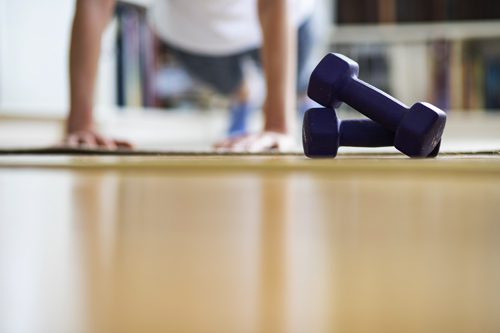
The Importance of Self-Care
We help safeguard our mental health when we practice self-care. For those in addiction recovery, self-care is an essential part of maintaining sobriety, especially during times of great uncertainty. We urge you to remember these helpful tips as we all continue to navigate this evolving crisis.
Recognize That Your Feelings Are Normal
These are not normal times. Illness, job loss, reduced work hours, canceled events, closed businesses, and not knowing what the future may hold are creating a tremendous amount of stress. If you’re feeling anxious and upset, that’s completely normal.
Talk about your feelings and your specific coronavirus-related worries with a trusted friend or family member. You may also want to seek guidance from your sponsor, your therapist, and/or your religious leader.
Journaling is often recommended as a tool to help people in recovery better understand their emotions. During a global pandemic, journaling gives you a safe and private space to document your feelings. Getting in the habit of journaling every morning or every evening can be a good way to manage your worries about the virus and how it’s affecting your recovery progress.
Keep a Regular Schedule
If you’re not working due to COVID-19, it may be tempting to throw away your alarm clock, stay up all night, and nap whenever you feel like it. This is a mistake.
A regular sleep schedule keeps you well-rested, boosts your energy, and improves your concentration. Ideally, you should try to go to bed and wake up within an hour or two of the same time each day. Keep your bedroom cool and dark. Limit caffeine in the evening hours. If you absolutely must nap during the day, limit it to 20 minutes or less.
Put Down the Junk Food
Stress eating is understandable, but it’s smart to keep your consumption of cookies, chips, and other treats to a minimum. Think of food as fuel for your body. A poor-quality diet doesn’t give you the energy you need to get through the day. It can leave you feeling tired and irritable, which will make it harder to resist cravings for drugs or alcohol. Proper nutrition is a proven way to boost your mood, and it’s an excellent way to practice self-care.
Make it easy to eat right by stocking your kitchen with healthy snacks. If you’re trying to limit trips to the grocery store, a homemade trail mix with nuts, whole-grain cereal, and dried fruit has a long shelf life. Air-popped popcorn is another great choice, since it can be seasoned in different ways to add variety to your snacking routine. If it’s becoming hard to find meat locally, consider picking up a few boxes of protein bars as well.
Exercise
The vast majority of people dealing with COVID-19 restrictions find that they’re getting significantly less physical activity than they did before. This can lead to fatigue, sleep troubles, weight gain, and trouble regulating mood.
You don’t need to have access to the gym to stay fit. A few ideas for practicing self-care by exercising at home include:
- Do push-ups or crunches while watching TV.
- Make your own weights by filling empty soda bottles or half-gallon milk jugs with water or sand.
- Try a new workout routine you found on YouTube.
- Turn on your favorite music and dance.
- Go for a walk around your neighborhood or at a local park.
- If you’re a parent, take your kids outside for a game of catch.
Find Ways to Connect with Others
Large gatherings of friends and family are not recommended due to the potential to spread COVID-19, but there are still lots of ways to fulfill your need for social connection. For example:
- Check in via text throughout the day.
- Schedule Zoom calls or video chats.
- Plan a virtual game night, movie night, or book club discussion.
- Share funny memes via social media.
- Write letters or create care packages to send.
Explore New Hobbies
Boredom is a well-known trigger for relapse. Instead of looking at the pandemic as forcing you to be stuck at home, view this as an opportunity to try out activities you never had the time to pursue before. This might include:
- Singing or playing an instrument
- Drawing or painting
- Sewing, knitting, or crocheting
- Woodworking
- Creative writing
- Putting together puzzles
- Trying new recipes or exploring ethnic cuisine
- Learning a new language
- Blogging or designing websites
- Redecorating your home
Continue to Make Your Recovery a Priority
COVID-19 restrictions can make it feel like life has been put on pause, but you simply can’t afford to get complacent with your recovery. During this time, it’s more important than ever to continue practicing the self-care strategies you learned at Mountain Laurel Recovery Center‘s Pennsylvania drug and alcohol addiction treatment program. For example:
- Continue to check in with your counselor or therapist, using telehealth appointments if in-person visits are not an option.
- Attend virtual 12-Step or support group meetings while in-person meetings are suspended.
- Make sure you always have a 30-day supply of any prescribed medication on hand. If needed, set reminders on your phone so you remember to take your meds each day.
- If you are struggling, reach out for help immediately. Don’t wait until a crisis occurs to take action.
